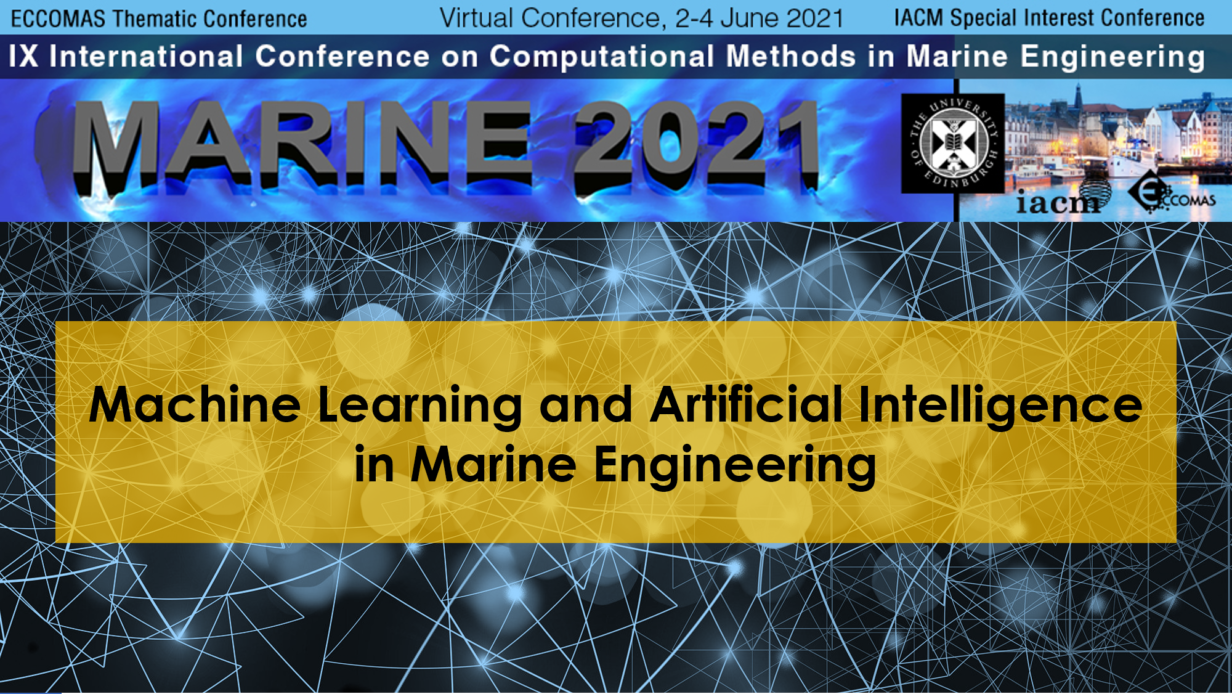
The complexity of marine engineering problems (from the analysis of complex physical phenomena to optimal design and control of marine structures and vessels; from marine exploration to autonomy and robotics applications) calls for suitable scientific computing frameworks able to provide cost-effective and reliable solutions. Cutting-edge methodologies of machine learning (ML) and artificial intelligence (AI) have shown their potential in providing effective solutions to these problems. The applications of ML/AI to marine engineering studies are many. However, commonly ML/AI techniques require significant amounts of data to learn from; in addition, the responses are often affected by lack of interpretability and their reliability is of difficult characterization. These features often constitute a limitation to the acceptance of these techniques for scientific computing in engineering applications since many engineering problems are associated with high-regret and safety-critical decisions for which the collection of reference data points is usually expensive. The scientific community is dedicating efforts to address this limitation, reduce the quantity of data required by the models, and improve interpretability and reliability of the predictions, therefore paving the way for a broader adoption and acceptance of ML/AI in engineering applications.
The objective of the invited session is to offer a place for discussion on capabilities, challenges, and open issues for the application of ML and AI to marine engineering. On the one hand, suitable ML and AI techniques may constitute enabling technologies to marine scientists and engineers to gain knowledge of complex physical phenomena, optimize designs and operations, and support decision-making processes. On the other hand, the marine engineering arena offers a stimulating variety of perspectives and S&T challenges to ML/AI researchers, potentially motivating and driving methodological breakthroughs not achievable elsewhere.
Topics of interest include, but are not limited to: ML in computational fluid and structural mechanics, fluid, structure interaction, turbulence modelling; ML in multi-information source and multi-fidelity modelling; Physics-based ML; ML/AI in design, optimization, and control; ML/AI in digital twins; ML/AI in marine exploration; Planning and acting integration, continuous operational loops based on sense-plan-act cycles; Semantic representation for decision making in marine scenarios.
Invited Session Organizers
- Dr Amedeo Cesta, CNR-DSU, Italy
- Dr Matteo Diez, CNR-INM, Italy
- Dr Thomas Fu, ONR, United States
- Dr Laura Mainini, Politecnico di Torino, Italy
- Dr Jeroen Wackers, LHEEA-ECN-CNRS, France
Invited Session Program (BST time zone)
Conference Website

